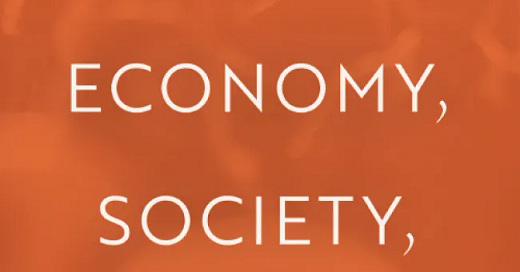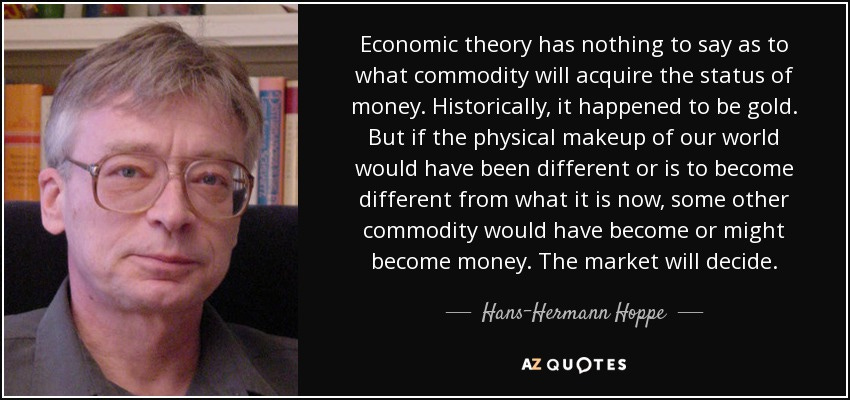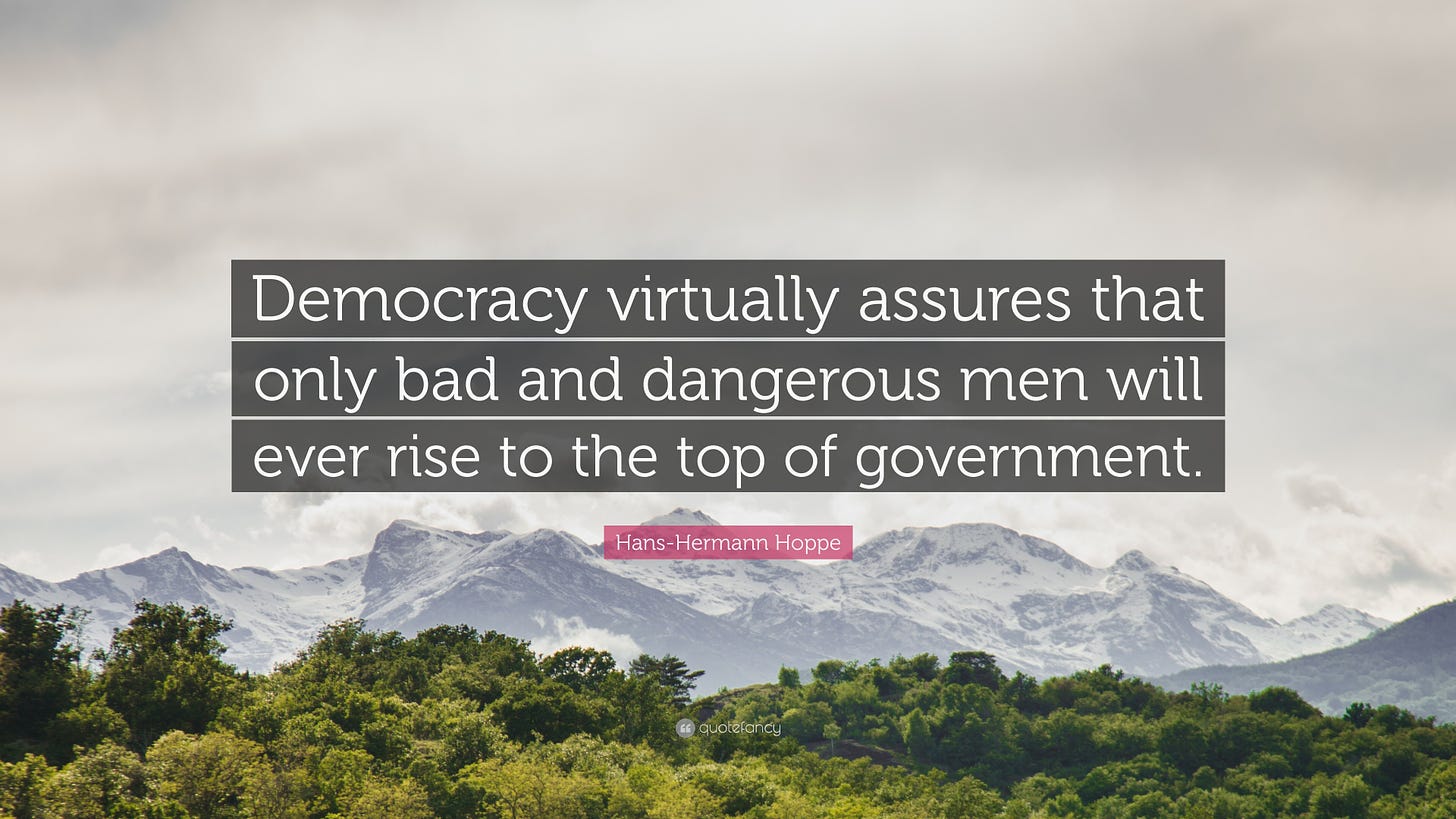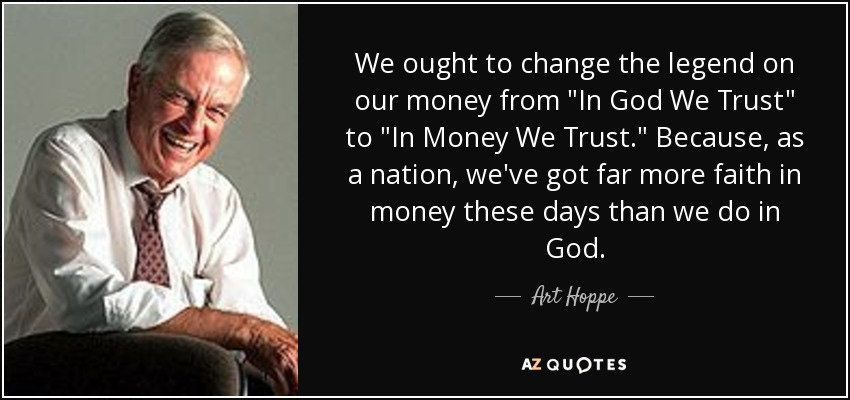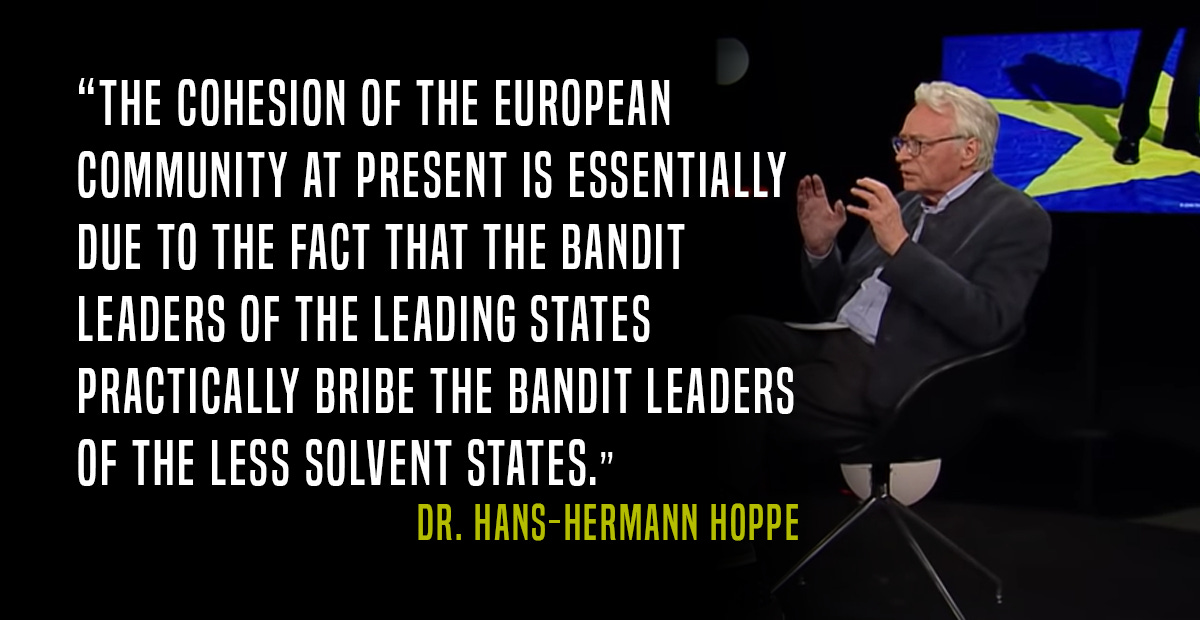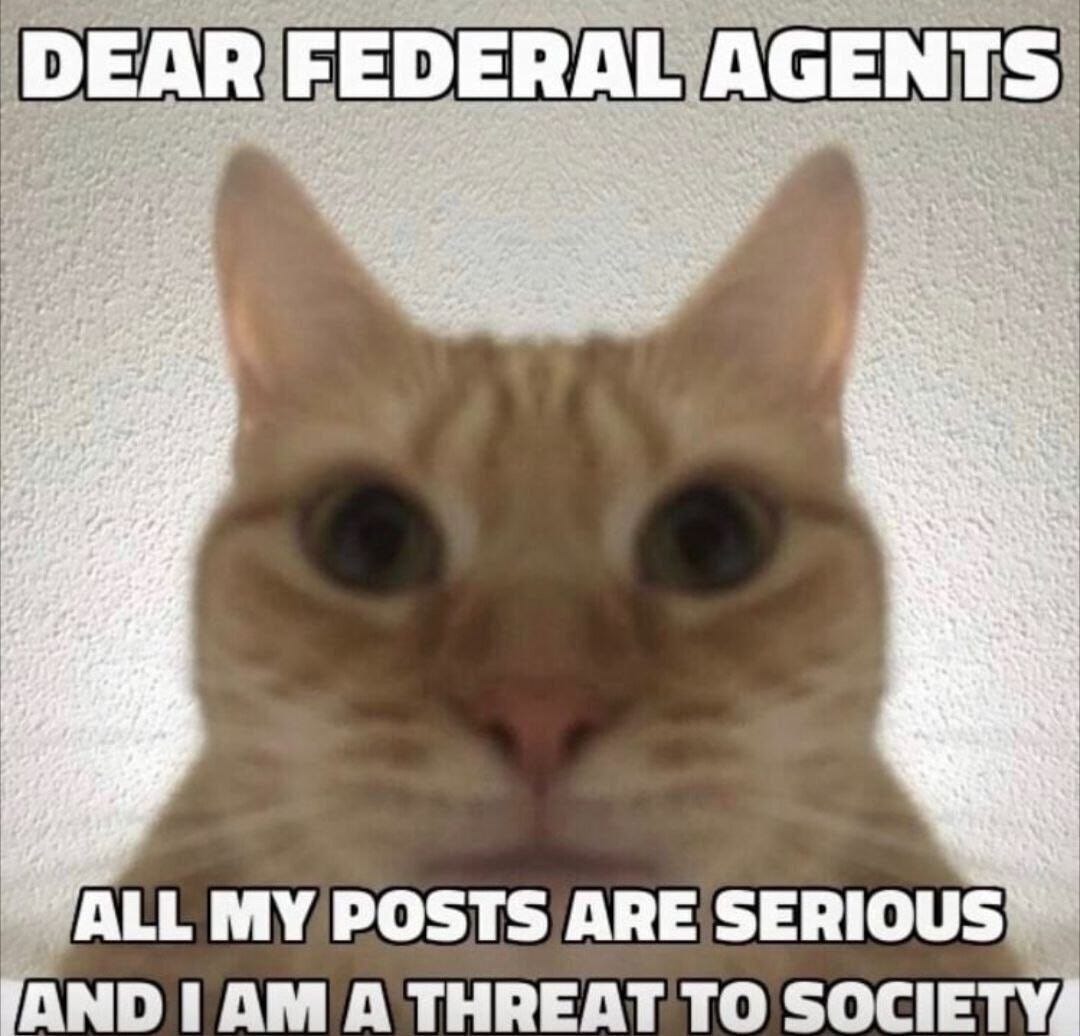Break The State Book Club (Introduction)
The Truth Addict Newsletter is a reader-supported publication. To support my work, consider becoming a paid subscriber (~$0.16/day).
Mission Accomplished
The Truth Addict Newsletter is a reader-supported publication. To support my work, consider becoming a paid subscriber (~$0.16/day).
Source: Mises.org
Economy, Society, and History
In June 2004, Professor Hoppe visited the Mises Institute in Auburn to deliver an ambitious series of lectures titled Economy, Society, and History.
Over ten lectures, one each morning and afternoon for a week, Dr. Hoppe presented nothing short of a sweeping historical narrative and vision for a society rooted in markets and property. Delivered only from notes, to an audience of academics and intellectuals, the lectures showed astonishing depth and breadth. Even the most jaded scholars in the room were blown away by the erudition and scholarship of Hoppe’s presentation.
This project brings together the core of Hoppe’s lifetime of theoretical work in one vital and cohesive source. Here we find provocative themes developed by Hoppe in the 1980s and 90s, particularly in his essays found in A Theory of Socialism and Capitalism and The Economics and Ethics of Private Property. We also find his devastating critique of democracy, made famous in his seminal book Democracy—The God That Failed.
We’ve taken the recordings, edited them, and put them into a printed book. As always, Hoppe is equipped—and unafraid— to tackle history, anthropology, philosophy, sociology, ethics, politics, and economics, melding them into one coherent thesis:
Foreword
Preface
Lecture 1: The Nature of Man and the Human Condition: Language, Property, and Production
Property developed naturally, not artificially, as a consequence of human action. What is the philosophical justification for private property, and what does property mean for economics and justice?
Lecture 2: The Spread of Humans Around the World: The Extension and Intensification of the Division of Labor
How did man evolve to develop trade and specialization? What did that mean for the development of society?
Lecture 3: Money and Monetary Integration: The Growth of Cities and the Globalization of Trade
Money solves problems of barter and trade; good money makes global economics possible. But money is always and forever subject to corrupting monopolization by states and central banks. How do we separate money from the state, and separate trade from politics?
Lecture 4: Time Preference, Capital, Technology, and Economic Growth
Time, and our preference for present goods over future goods, informs everything we do. Low time preference, demonstrated by capital accumulation, is the key to advancing civilization. How do we encourage capital accumulation when the forces of statism work against us?
Lecture 5: The Wealth of Nations: Ideology, Religion, Biology, and Environment
How did the West get rich? What intellectual movements threaten progress, or advance it?
Lecture 6: The Production of Law and Order: Natural Order, Feudalism, and Federalism
Must law be positive rather than evolved? Who creates it, and who enforces it?
Lecture 7: Parasitism and the Origin of the State
How did we get here? How does the ruling class derive its putative legitimacy, and what can the distant origins of governance teach us about the vast managerial social welfare states we endure today?
Lecture 8: From Monarchy to Democracy
Is democracy really the great advancement in human liberty we have been taught to believe? What is the role of natural and artificial elites?
Lecture 9: State, War, and Imperialism
States are necessarily expansionist and bellicose. How do we tame their warring and intervening nature?
Lecture 10: Strategy: Secession, Privatization, and the Prospects of Liberty
Can private covenant communities replace the state? Why is a private property order morally urgent? Is secession viable? How do we move forward strategically?
As you can see, this book is a tremendous addition to Hoppe’s body of work, and a hugely important contribution to the “big picture” outlook for the West. Hoppe’s work is more important today than ever, given the penchant of modern bureaucratic states to war, intervene, tax, regulate, debase, and generally plunder the engines of peace and civilization.
Economy, Society, and History is a blueprint for understanding the world, rethinking it, and creating a better one.
Meet the Author
Hans-Hermann Hoppe is an Austrian school economist and libertarian/anarcho-capitalist philosopher. He is the founder and president of The Property and Freedom Society.
Source: Mises.org
Hoppe: "My Dream Is of a Europe Which Consists of 1,000 Liechtensteins."
[Editor's note: Earlier this month Dr. Hans-Hermann Hoppe appeared on SERVUS TV for a discussion "On State, War, Europe, Decentralization and Neutrality." An English translation of the transcript was prepared by Leonhard Paul, a law student from Germany.]
Interviewer: I would like to welcome our second guest in the studio. It is the philosopher and economist with an international range Hans-Hermann Hoppe. Nice to meet you, Mr. Hoppe.
The dream of a united Europe, the eternal longing of the empire. Do you also dream this dream?
Hans-Hermann Hoppe: No. I don’t dream of this dream at all. My dream is the dream of a Europe, which consists of 1,000 Liechtensteins. I will also try to explain this. First of all, you have to realize that there is a difference between states and private companies. States are organizations that do not earn their money by producing something that people want to buy voluntarily or by offering services that people want voluntarily. States live from compulsory levies, taxes and from printing their own money. For this reason, states are institutions of exploitation. Economists have called them stationary bandits for this reason.
I.: Stationary bandits?
H.: Stationary bandits. They stay in one place. There are also roving bandits who would be …
I.: … would be highwaymen. Institutionalized highwaymen, so to speak, that’s the state?
H.: Right. They’re institutionalized. And, of course, states as bandit organizations have an interest in increasing their loot. They, including the entire public service, live at the expense of productive people. But when this exploitation becomes too severe people tend to migrate to other regions.
Therefore, states have a tendency to expand their territory. One way they will try expand is by waging wars. After all they can pass on the costs of war to the populace, whereas a private person or a private organization would have to bear the costs of aggression themselves. So states are by nature more warlike than private law organizations.
I.: If I may, Mr. Hoppe. You are basically calling for a Europe of a thousand Liechtensteins. Switzerland is probably already too big for you.
H.: Too big.
I.: Too big of an organism. We are, so to speak, the imaginary superpower now in this paradigm. But isn’t this atomization of Europe just an invitation for the predator states, which also have predators in their coats of arms? Like Russia, for example, with a double-headed eagle with claws that can grab terrain on all sides. Isn’t this parcellation, this fissuring of Europe through the thousand Liechtenstein an invitation to the potentates who unfortunately have always existed in history?
H.: Then the answer would be that we can only defend ourselves against these big states by becoming a big state ourselves.
I.: Exactly.
H.: But then wars would become really big wars. Small states wage at most small, relatively harmless wars. Large states that have emerged from wars wage war the way we see them today.
I.: You have lived in the USA. You now live in Turkey. You know big states; you also know the logic of great powers. Be honest now: The great powers have always lied about a reason to conquer small countries. They have made metaphysical or ideological systems out of whole cloth. So isn’t it precisely this disintegration, this fragmentation of Europe, that is the most dangerous thing in the present situation?
H.: Even large states have to make sure that they have support within their own population for the wars they undertake. You have to be able to somehow explain the cause of the attack clearly to your own population. It has been emphasized not by chance that the biggest problem for Putin is probably not the immediate military events, but the fact that Russia is a country where there are few children. The mothers who are now losing their children in the war will ensure that support in their own country will continue to decline.
I.: And your point supports the argument that Putin can’t say anything or even must forbid calling this war a war, because he is afraid to lose support at home.
H.: Therefore, one must advise small states to pursue a strict policy of neutrality. Of course, they should arm themselves. It should not be without cost to attack them. Nevertheless, if you know there is no chance to win a war against a foreign power, you have to consider surrendering, because you see that only one corrupt gang is exchanged for another corrupt gang. For example, the Ukraine war: It is not the case that Ukraine has been an exemplary democratic Western state. On corruption indices they were worse than Russia. The economic productivity per person in Ukraine is lower than the economic productivity per person in Russia. The leaders in Ukraine are corrupt.
I.: Yes. I can follow you in the principle: power corrupts. Absolute power corrupts absolutely. And the greater the power, the greater the corruption. There’s the principle of small is beautiful, so maybe a smaller country is easier to govern. But let’s stay with this willingness to defend at the moment. How are the small ones supposed to defend themselves when a big power-drunken ideology-drunken state suddenly has the feeling that it can roll over certain areas? How do they defend themselves?
H.: One answer would be that we also have to form a large state. But a large state exploits its domestic population particularly heavily. Do you want this as an answer to a possible attack by another big state? The other variant is that small states enter into a series of alliances with the possibility of acting together against an enemy. A right of veto would be necessary, because one sees the danger in NATO that small states—let’s say, the Baltic states—because they feel safe …
I.: … that they have become overconfident.
H.: … behave in a particularly brash way. And as a result they could drag the whole West into wars, so to speak.
I.: Now a completely different challenge: There is also the discussion about climate change and refugees. If I understand you correctly, you actually advocate for a cooperative intergovernmental model. One would then have to try to combat climate change, perhaps through an alliance of smaller states. How do you see the small-state model in the light of such other so-called global challenges?
H.: I’m not at all sure that this is a global challenge or whether it’s not an invented problem. Nobody has denied that there is such a thing as climate change. The question is: What is the human contribution to these problems? There is by no means only one answer. We are led to believe that there is scientific consensus on what exactly is causing this. That is untrue. The alternative is: If there are such challenges that the weather becomes warmer, different regions will naturally govern differently because the crisis presents itself differently in different areas. Greenland is affected differently by global warming than the Maldives. The idea that there should be a correct global temperature, so to speak, is completely absurd.
I.: In principle, you would say that this whole climate issue is almost a kind of power-ideological presumption.
H.: They want to centralize and have chosen this topic. Each person adapts individually to such situations. Either one buys more refrigerators or one buys more air conditioners or something like that. But I can’t even agree with my wife on the temperature in the bedroom. I would like it to be colder. She would like it warmer. How megalomaniacal do you have to be that people, who are a little bit more on the kindergarten level in terms of their education, believe that they themselves know what the average global temperature has to be. They presume to know how we can bring that about by intervening in the economy in all areas. They say: you can’t eat that, you have to drink that. You are not allowed to go there. But you have to go there, and so on.
I.: Well, I think that many people (at least I) follow you in this criticism of power and the bureaucratic overarching. But nevertheless I must challenge you here also a little, Mr. Hoppe. Is it not a fact that the founding of states is a cultural achievement? The famous social and political scientist, the great liberal Dahrendorf said: the nation state, this somewhat larger entity, is still the only suitable framework for the rule of law and democracy—what do you have to say to Ralf Dahrendorf? You as a former Habermas student.
H.: Germany has been unified by wars. Italy was unified by wars. Even Switzerland emerged from a war.
I.: A very short war.
H.: But still from a very short war, the Sonderbund war, and one group was forced to obey the other group. You obey us now! Although in itself the demand was that there must be a unified agreement of all cantons, which in fact did not exist. So why should one agree to a statement that nation-states are a great invention, when a war was necessary to create such a thing in the first place?
I.: But you were in the U.S. and the U.S. is one of those rare examples where one could say that in the eighteenth and nineteenth centuries the liberal nation-state functioned very well almost as a liberal national imperial entity.
H.: No.
I.: Would you also say the U.S. has to split up again?
H.: In America there has been a war, a tremendously brutal war, which in comparison to what Putin is doing in Ukraine now, was probably worse because they deliberately targeted the civilian population that they wanted to destroy. To this day, there are large parts of the American South that believe that this was the war of northern aggression. Before that, the opinion was similar to that in Switzerland: individual states could leave the union of the United States. That has been settled since then.
I.: Okay, I have also failed here to bring you somewhat out of balance. Last question in our conversation: Where do you see the future of the European Union? Where will we go now in the direction of Mrs. Guérot: European republic, larger entity, or do you believe that the Hoppean paradigm of a more chambered regionalist EU is the future?
H.: The states want to have what Mrs. Guérot said, of course.
I.: What will happen?
H.: I am sure that the basic idea of the European community is to reduce competition between countries. A common taxation policy is introduced, which takes away any reason for economic entities to move from one place to another. With the euro monetary competition has been abolished, which previously prevented countries from printing money at will. They were afraid of devaluing their currency. With the euro this fear is no longer necessary. The cohesion of the European community at present is essentially due to the fact that the bandit leaders of the leading states practically bribe the bandit leaders of the less solvent states. As soon as the economic power of Europe is going down by punishing the productive ones more and more these support payments are no longer possible. Then the European Union will break apart.
I.: A sobering conclusion. If I have understood you correctly, you do not believe in the functioning of these institutions of a European Union. We have already come to the end of our discussion and I thank you very much for your visit to the studio.
H.: Thank you very much.
Ways to connect
PGP Fingerprint: 7351 9c62 95cc 8130 d8b1 c877 ec99 9aaf 5b1f b029
Email: thetruthaddict@tutanota.com
Telegram: @JoelWalbert
The Truth Addict Telegram channel
Hard Truth Soldier chat on Telegram
The Truth Addict Media Archive (downloadable documentaries, interviews, movies, TV, stand-up, etc)
Mastodon: @thetruthaddict@noauthority.social
Session: 05e7fa1d9e7dcae8512eed0702531272de14a7f1e392591432551a336feb48357c
Odysee: TruthAddict
Rumble: thetruthaddict09
NoAgendaTube: The Truth Addict
Donations (#Value4Value)
Buy Me a Coffee (One time donations as low as $1)
Bitcoin:
bc1qc9ynhlmgxcdd2mjufqr8fxhf248gqee05unmpg (on chain)
nemesis@getalby.com (lightning)
joelw@fountain.fm (lightning)
+wildviolet72C (PayNym)
Monero:
8ByhEVizjL2Z7uy2pvgCsqHRpajwx18mQbeCVDtxK94ninbBz7ioFVJCnpdUEk55oV7g1yyLj4RhejSEUN8bfR7b6gbUcnP

